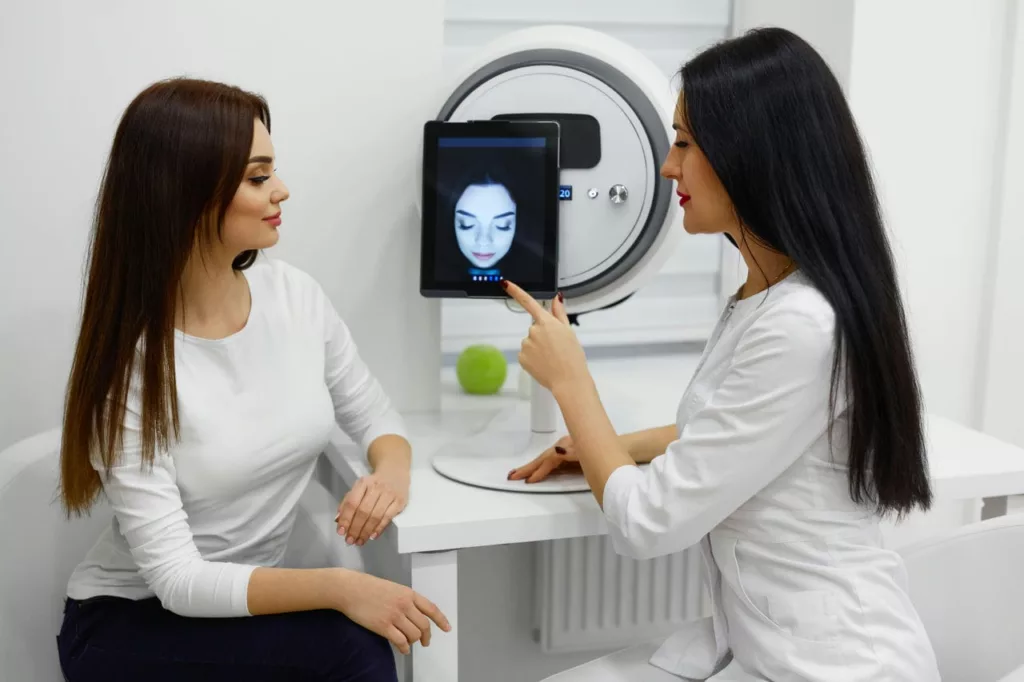Index
ToggleHyperpigmentation, a common skin concern, arises when certain areas of the skin develop darker pigmentation than surrounding areas. While various treatments are available, natural home remedies offer a gentler approach to addressing hyperpigmentation. In this comprehensive guide, we will delve into the causes, symptoms, effective home remedies, and additional insights into hyperpigmentation.
What Causes Hyperpigmentation?
1. Exogenous Factors
External factors significantly contribute to the development of hyperpigmentation. Prolonged sun exposure, a leading cause, stimulates the production of melanin, the pigment responsible for skin color. Frequent exposure to the sun without adequate protection can lead to uneven pigmentation, emphasizing the importance of sun safety measures.
2. Endogenous Factors
Internal factors, such as hormonal changes, play a substantial role in hyperpigmentation. Conditions like melasma, often associated with pregnancy or birth control pills, result in dark patches on the skin. Understanding the hormonal component of hyperpigmentation is crucial for tailored treatment.
3. Nutritional Factors
Nutritional deficiencies, particularly in vitamins B12 and D, can impact skin health and contribute to pigmentation irregularities. A well-balanced diet rich in essential nutrients is crucial for maintaining healthy skin and preventing pigmentation issues.
Symptoms of Hyperpigmentation
Hyperpigmentation manifests as darkened areas on the skin, varying in size and color from light brown to black. These areas can occur in isolated patches, cover large areas, or affect the entire body. The symptoms may include:
- Uneven Skin Tone: Hyperpigmentation often leads to uneven skin tone, with some areas appearing darker than others.
- Dark Spots and Patches: The formation of dark spots or patches on the skin is a common symptom. These areas may be more noticeable on the face, hands, or other sun-exposed areas.
- Changes in Skin Color: The affected areas may exhibit changes in color, ranging from light to dark brown or black. These changes can impact an individual’s appearance and self-confidence.
- Presence of Freckles or Moles: Freckles or moles may become more pronounced in areas affected by hyperpigmentation.
- Discoloration After Inflammation: Hyperpigmentation may develop after skin inflammation or injury, leading to persistent discoloration in those areas.
- Understanding these symptoms is crucial for early detection and prompt initiation of appropriate home remedies and skincare practices.
Types of Pigmentation Treatment
- Treatment for Tan: Chemical peels, light-based treatments, Pixel laser treatment, and medications can effectively treat tan by removing old layers of skin to promote skin regeneration. When the tanned skin layers containing excessive melanin are removed, you will notice a visible reduction in skin tan.
- Treatment for Melasma: Glycolic peels and trichloroacetic acid peels, light-based treatments, lasers (Pixel, Q-switched Nd: YAG), medications, and sunscreens can treat melasma. Factors such as the duration of melasma’s onset, pigmentation depth, and lifestyle affect the response to melasma.
- Treatment for Freckles: Light-based treatments such as Super Skin Rejuvenation and Q-switched Nd: YAG laser have a high success rate and low risk of scarring. These are quite effective in reaching deep dermal layers and specifically targeting the pigment (melanin) without harming the surrounding skin.
How to Treat Pigmentation on Face
Addressing hyperpigmentation requires a comprehensive approach. Alongside topical treatments, lifestyle changes and protective measures are essential for managing and preventing further pigmentation.
Best Home Remedies for Hyperpigmentation
- Lemon Juice: The citric acid in lemon juice acts as a natural bleaching agent. Apply fresh lemon juice to the affected areas and leave it on for about 15 minutes before rinsing. Regular application is key for optimal results.
- Aloe Vera: Known for its skin-soothing properties, aloe vera gel can help lighten dark spots. Apply aloe vera gel directly to the pigmented areas and leave it on for 30 minutes before washing it off. Consistency is essential for visible improvements.
- Turmeric Paste: Turmeric contains curcumin, with antioxidant and anti-inflammatory properties. Create a paste by mixing turmeric powder with milk or honey and apply it to the affected areas. Regular application enhances the skin-brightening effects.
- Curd (Yogurt): The lactic acid in yogurt exfoliates the skin, promoting cell turnover. Apply plain yogurt to the skin and leave it on for 20 minutes before rinsing. Incorporating yogurt into your skincare routine contributes to long-term benefits.
- Potato Slices: Potatoes contain enzymes and vitamin C that can help lighten hyperpigmented areas. Place potato slices on the skin for 10-15 minutes and then rinse. Consistent application aids in reducing pigmentation.
- Green Tea Extract: Green tea is rich in antioxidants. Applying green tea extract or cooled green tea bags to the skin may help reduce pigmentation. Regular use complements other remedies for enhanced efficacy.
- Papaya Mask: Papaya contains enzymes like papain that can exfoliate the skin. Mash ripe papaya and apply it as a mask for 15-20 minutes before washing off. Regular use contributes to improved skin texture.
Additional Insights into Hyperpigmentation
1. Role of Hormones
Hormonal fluctuations, especially during pregnancy or while taking contraceptives, can contribute to the development of hyperpigmentation. This condition, known as melasma, often affects the face. Hormonal balance is crucial for managing melasma effectively.
2. Post-Inflammatory Hyperpigmentation (PIH)
PIH can occur after skin inflammation or injury, leaving darkened areas. Proper wound care and sunscreen use can help prevent PIH. Consistent skincare practices aid in reducing the risk of post-inflammatory pigmentation.
3. Genetic Factors
Some individuals may be genetically predisposed to hyperpigmentation. Understanding family history can provide insights into potential skin concerns. Genetic factors influence the propensity for pigmentation issues.
4. Sun Protection
Sunscreen is a crucial component in managing and preventing hyperpigmentation. Regular application, especially in sun-exposed areas, helps protect the skin from further pigmentation. Sun protection is vital for preserving the effectiveness of home remedies.
5. Professional Treatments
For persistent or severe hyperpigmentation, professional treatments such as chemical peels, laser therapy, or microdermabrasion may be recommended. Consultation with a dermatologist is advisable for personalized advice and advanced treatments if needed.
FAQs
1. What Clears Hyperpigmentation Fast?
While results vary, consistent use of natural remedies like lemon juice and aloe vera may help fade hyperpigmentation over time. Patience and adherence to a skincare routine are key for optimal outcomes.
2. How Do You Get Rid of Hyperpigmentation Naturally?
Natural remedies such as lemon juice, aloe vera, and turmeric paste can contribute to reducing hyperpigmentation. These remedies, when used regularly, may help lighten dark spots and even out skin tone.
3. Can Curd Remove Pigmentation?
Yes, curd (yogurt) contains lactic acid, which acts as a gentle exfoliant. Regular application of curd can help in reducing pigmentation and promoting smoother skin.
4. Can Turmeric Remove Pigmentation?
Turmeric’s anti-inflammatory and antioxidant properties make it effective in addressing hyperpigmentation. Creating a turmeric paste and applying it to the skin can contribute to a more even skin tone.
5. How Can I Reduce Pigmentation Overnight?
While overnight results may not be achievable, applying aloe vera gel or lemon juice before bedtime and leaving it on overnight can contribute to gradual skin brightening. However, patience is essential for sustainable results.
6. Can Home Remedies Remove Pigmentation?
Yes, several home remedies, when used consistently, can contribute to reducing hyperpigmentation. It’s crucial to choose remedies suitable for your skin type and adhere to a regular skincare routine.



